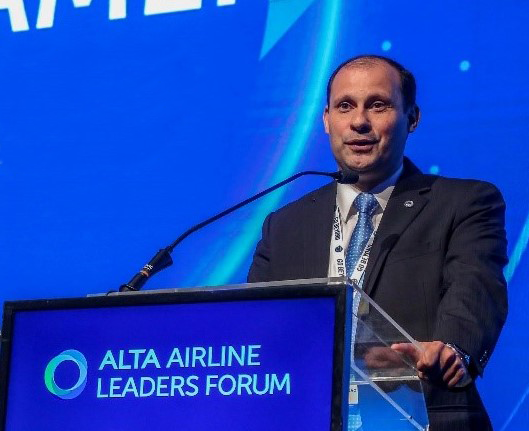By José Ricardo Botelho*
2023 is coming to an end and, as I look at the results of the work done by all the sectors that make up the civil aviation ecosystem in Latin America and the Caribbean, I feel a deep sense of pride for being part of a sector that – even without support and, in many cases, with headwinds – has managed to recover in a spectacular and exemplary manner to offer users the safest and most efficient means of transportation.
In this same exercise of introspection, I also feel a deep concern. Despite the remarkable efforts of the industry in the region, we see how in many cases aviation is still perceived as a luxury service, as an industry from which profit can be made without considering that it is a very low-margin sector. We see how some authorities still dictate unilateral measures that not only harm the development of aviation, but also hinder the healthy development of the economies of their countries and end up affecting the population, both those who use air transport and those who have a job opportunity every time an airplane lands in their community.
We are at a pivotal moment. The world faces unprecedented challenges and aviation is more important than ever. It is the engine that drives trade, investment, tourism and culture. It is the force that brings people and communities together.
Raising our level of awareness means understanding aviation’s undeniable role. First, we must understand that aviation is a sector closely linked to our economies, an engine of well-being and prosperity: specifically, aviation supports almost 8 million jobs in the region and contributes 3.5% of the region’s GDP.
We have recently asked the world what a world without aviation would be like, and we have found that without it, modern life would not only be more difficult but also more costly. Our countries benefit from air transport to export food and goods, but also to import them, to establish new businesses, to reach remote corners where aid and development are needed, generating progress for thousands of people.
Despite this, some political decisions are detrimental to the industry. Examples are the decision to require visas for crew members, the increase in airport taxes that make air transport more expensive for passengers and hinder the growth of an essential sector for connecting localities, bureaucracy that reduces the agility of processes and times to meet operational commitments, the lack of concrete actions to maintain a capacity in line with passenger demand at important airports in the region that activate a broad value chain that generates jobs, opportunities and development.
These are unilateral measures that threaten the aviation industry in Latin America. It is crucial that governments recognize aviation as an ally to achieve socioeconomic development in their countries. It is not only an economic engine, but also a unifying force that allows communities around the world to receive essential goods and maintain cultural and economic connections. Aviation is vital for our countries to broaden the avenues necessary to energize international trade and cooperation.
As I look back on this review, I can only hope that during this 2024 the governments of our region will have a greater understanding of the essential role aviation plays and that we will act accordingly. The industry is at a critical juncture. It is time to act, to give aviation wings. Only by working together with coherent State Agendas, we will see that Together, as a region, we Take Altitude.
More information about our campaign is available here: https://alta.aero/juntos-tomamos-altura/
Thank you for reading.

